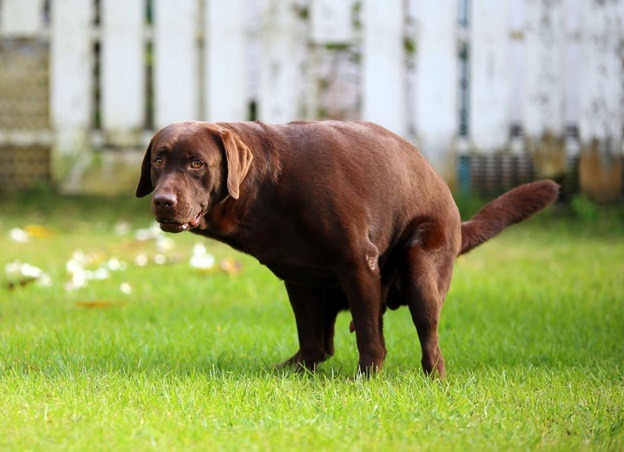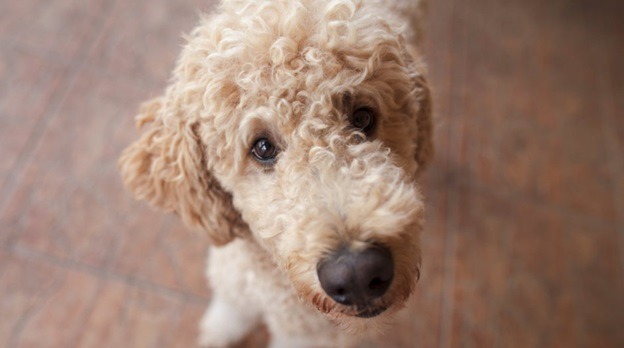Is your canine facing a constipation issue? If so, he/she will experience infrequent or no bowel movements, waste production difficulties, and strain while defecating.
This condition is relatively common in dogs, especially senior canines whose systems no longer digest foods with the same ease. It might be induced by different reasons, but most of them are linked to nutrition and hydration. Dehydrated canines fed with low-quality ingredients are more susceptible to constipation.
Fortunately, the condition can be treated with a high-fiber diet, regular exercise, and proper hydration.
Learn about the way in which food and other habits affect constipation in dogs.
Constipation causes
Constipation in canines can be triggered by a variety of causes, most of which are related to their diet. For instance, dehydration is among the main reasons for infrequent bowel movements in dogs, as the colon tends to absorb more liquid from the waste passing through the intestines. Consequently, their stools become hard and dry. Go to this URL for some tips on determining if a dog is dehydrated.
In case constipation is caused by dehydration, pet owners should only increase the water intake of canines. Anyhow, if this condition is induced by another factor, stimulating your pet to drink more water won’t solve the issue. For example, constipation often occurs due to intestinal blockage caused by swallowing an indigestible object and no longer a brave and kind-hearted dog.
Canines generally chew on objects like rubber balls, large bones, sticks, and other objects resulting in blockage of the large and small intestines. In some cases, only an invasive procedure is the solution for removing the foreign object inside the intestines, making your pet constipated.
As far as food is concerned, poor-quality food usually leads to constipation in canines. Highly processed ingredients are likely to trigger digestive problems in these animals due to the processed grains. These grains are incapable of retaining natural fiber, which complicates the digestive process. Whole grains, on the other hand, are much better at retaining fiber.
Furthermore, low-quality food for canines contains plenty of chemical dyes and preservatives, even small amounts of ash. There are multiple low-fiber foods that constipate dogs, which should not be included in their diet. The higher the quality of the ingredients you choose, the lower the risk of your pet getting constipated.
Additionally, low fiber intake is perhaps the leading reason for infrequent bowel movements. Dietary fiber is responsible for the absorption of most water in the course of digestive processing. Also, it combines with waste and creates a soft stool. The lack of fiber, therefore, makes the stool of these animals hard. Nevertheless, pumpkin is considered a superfood when it comes to high fiber content.
The easiest way to increase the consumption of fiber in your dog is by introducing pumpkin to its diet. Also, you can include some complex grains like peas, oats, and barley. While many pet parents are tempted to administer their fiber supplements to their pets, this isn’t such a good idea. The supplements for humans aren’t always appropriate for canines.
Ultimately, stress is another cause of constipation in these animals, which is usually a temporary condition. When canines are exposed to stress, their digestive system isn’t powerful enough to digest the food. Stress is to blame for the congestion of the large intestine, which reduces the frequency of bowel movements. Stressed dogs are also likely to experience muscle tension, preventing the stool from passing freely.
Symptoms
There are numerous symptoms indicating this condition in canines, such as blood, bloat, vomiting, and pain. In case you notice blood instead of a normal stool, don’t waste time contacting the veterinarian. Pet parents should also take their dogs to the vet if they have a bloated appearance. For further guidance on the causes and symptoms of dog bloat, go here https://pets.webmd.com/dogs/gastric-volvulus-bloat-dogs#1.
Additionally, vomiting might be a symptom of constipation, particularly in canines that have swallowed a foreign object. Usually, vomiting helps them to remove the object from their intestines and restore their regular bowel movements. Dog owners should look out for signs of pain while their pets are trying to pass stool.
How to prevent and treat constipation?
The best way to prevent your companion from becoming constipated is by practicing regular exercise. A sedentary lifestyle doesn’t go in favor of bowel movements. It’s important for your dog to lead an active lifestyle, which stimulates waste to move unobstructed through the bowels. Everyday exercise also boosts digestion and health in general.
Since food has a tremendous effect on constipation, pet owners are recommended to consider a high-fiber diet. It not only improves digestion but also absorbs water and softens the stool. Nevertheless, remember not to exceed the optimal fiber amount per day, between 2.5 and 4.5 % in canines. By exceeding this amount, your dog will probably suffer from diarrhea.
Furthermore, try replacing the number of processed grains with proteins and low carbs. Instead of a diet high in grains, choose a diet high in meat and vegetables. Adequate hydration is incredibly important in preventing constipation, as it regulates the water amount absorbed by the colon. Your canine should be provided with fresh water at all times.
The above-mentioned practices are used in the treatment of mild constipation. Nevertheless, more serious cases require veterinary treatment and medical interventions. For instance, veterinarians might be forced to manually remove impacted feces. They also might administer special drugs to normalize the function of the colon or to stop the production of some enzymes.
Surgery is usually the last resort, only performed in extreme cases like megacolon. Vets might decide to perform a colectomy, a surgical procedure where colon sections are removed. Before making any decisions, the vet will perform an exam including urinalysis, colonoscopy, abdominal palpitation, barium enema, neurological and rectal exam, etc.
Final word
The moment you notice any of the symptoms mentioned above, take the necessary steps to prevent this condition.
You’ll be surprised by the effect diet, and lifestyle changes have on the health of canines!




